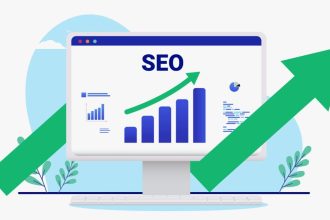In an increasingly interconnected world, where every scroll, click, and tap shapes our reality, the very fabric of commerce has undergone a profound transformation. Gone are the days when a well-placed billboard or a prime-time television commercial guaranteed market dominance. Today, businesses, whether fledgling startups or established giants, are navigating a dynamic landscape demanding unprecedented agility and foresight. This seismic shift is precisely why understanding and mastering Digital Marketing has become not merely an advantage, but an absolute imperative for sustained growth and undeniable relevance in the 21st century.
At its core, Digital Marketing encompasses all marketing efforts that utilize an electronic device or the internet. By leveraging myriad online channels – from search engines and social media platforms to email and mobile applications – companies can connect with current and prospective customers with remarkable precision and unparalleled efficiency. This isn’t just about selling; it’s about building relationships, fostering communities, and creating an indelible brand presence that resonates deeply with target audiences. Embracing this digital revolution means unlocking a universe of opportunities, paving the way for innovative strategies that transcend traditional limitations and propel businesses towards unprecedented success.
Key Pillars of Digital Marketing Excellence
To fully grasp the scope and strategic importance of Digital Marketing, it’s essential to understand its foundational elements. This comprehensive framework offers businesses a versatile toolkit for engaging with customers and achieving measurable results.
| Aspect | Description | Strategic Importance |
|---|---|---|
| Definition & Scope | Encompasses all marketing efforts utilizing electronic devices or the internet, including SEO, SEM, social media, content, email, and mobile marketing. | Provides a versatile, measurable, and adaptable framework for reaching target audiences globally. |
| Core Components | Search Engine Optimization (SEO), Pay-Per-Click (PPC), Social Media Marketing, Content Marketing, Email Marketing, Affiliate Marketing, Video Marketing, and Marketing Automation. | Each component serves a distinct purpose, collectively building a robust, multi-channel approach to customer engagement and conversion. |
| Key Advantages | Global Reach, Enhanced Targeting, Measurable Results (ROI), Cost-Effectiveness, Personalization, Increased Engagement, and Brand Building. | Enables businesses to optimize spending, refine strategies in real-time, and cultivate stronger, more direct customer relationships. |
| Future Outlook | Driven by AI, Machine Learning, Voice Search Optimization, Immersive Experiences (AR/VR), and Hyper-Personalization. | Continual evolution demands adaptability and a forward-thinking approach to remain competitive and relevant in an ever-changing digital landscape. |
For further insights into the world of digital marketing, visit: HubSpot: What is Digital Marketing?
Beyond the Basics: Unpacking the Power of Digital Channels
Delving deeper, Digital Marketing is a tapestry woven from various specialized disciplines, each contributing uniquely to a brand’s online narrative. Consider Search Engine Optimization (SEO), a meticulous art and science focused on elevating a website’s visibility in search engine results. By optimizing content and technical aspects, businesses can organically attract an audience actively searching for their products or services, essentially becoming a beacon in the vast digital ocean. Complementing this is Pay-Per-Click (PPC) advertising, offering immediate visibility through paid ads that appear prominently on search engines and other platforms. This dual approach ensures both long-term organic growth and instant impact, a remarkably effective combination for market penetration.
Then there’s the vibrant realm of social media marketing, where brands engage directly with consumers, building communities and fostering loyalty through authentic interactions. Platforms like Instagram, TikTok, LinkedIn, and Facebook aren’t just for sharing; they are powerful engines for brand storytelling, customer service, and even direct sales. Hand-in-hand with social media is content marketing, a strategy centered on creating and distributing valuable, relevant, and consistent content to attract and retain a clearly defined audience. Whether it’s insightful blog posts, engaging videos, or informative infographics, quality content establishes authority, builds trust, and gently guides potential customers along their journey.
The Unrivaled Advantages: Why Digital Outperforms Traditional
The allure of Digital Marketing isn’t just its breadth, but its profound advantages over traditional methods. Firstly, its reach is virtually limitless. A local business, once constrained by geographical boundaries, can now effortlessly connect with customers across continents, transforming its potential market overnight. This global accessibility is coupled with an unparalleled ability to target specific demographics. Unlike broad-stroke advertising, digital campaigns can be meticulously tailored to specific age groups, interests, locations, and even online behaviors, ensuring marketing messages resonate with those most likely to convert. This precision minimizes wasted expenditure, making every marketing dollar work harder and smarter.
Moreover, measurability stands as a cornerstone of digital success. Every click, impression, conversion, and interaction can be meticulously tracked and analyzed, providing invaluable insights into campaign performance. This data-driven approach allows marketers to understand what’s incredibly effective and what needs refining, enabling real-time optimization and significantly boosting Return on Investment (ROI). As Sarah Frier, a renowned tech journalist, once observed, “Data is the new oil.” In Digital Marketing, this adage rings particularly true, empowering businesses to make informed decisions rather than relying on guesswork. By integrating insights from AI-driven analytics, campaigns become living entities, continuously learning and adapting for peak performance.
Expert Perspectives and the Road Ahead
Leading industry voices consistently emphasize the transformative power of a robust digital presence. “Digital marketing isn’t just about technology; it’s about understanding human behavior in a digital context,” asserts Neil Patel, a globally recognized marketing influencer. This perspective underscores the need for empathy and strategic thinking, not just technical prowess. Indeed, the landscape is rapidly evolving, with artificial intelligence (AI) and machine learning (ML) increasingly shaping future strategies. From predictive analytics guiding content creation to AI-powered chatbots enhancing customer service, these innovations are making digital campaigns even more personalized, efficient, and impactful. Voice search optimization, augmented reality experiences, and hyper-personalization are not distant fantasies but present-day realities for forward-thinking brands.
Consider the remarkable success stories: small e-commerce ventures leveraging Instagram to build global brands, SaaS companies acquiring thousands of customers through targeted LinkedIn campaigns, or non-profits mobilizing vast support via viral video content. These examples powerfully illustrate that size and budget are no longer insurmountable barriers; ingenuity and a deep understanding of digital dynamics are the true differentiators. The future of commerce is inextricably linked to digital innovation, promising even more sophisticated tools for engagement, analysis, and conversion. Embracing this evolution, rather than resisting it, is the only path to sustained prosperity.






